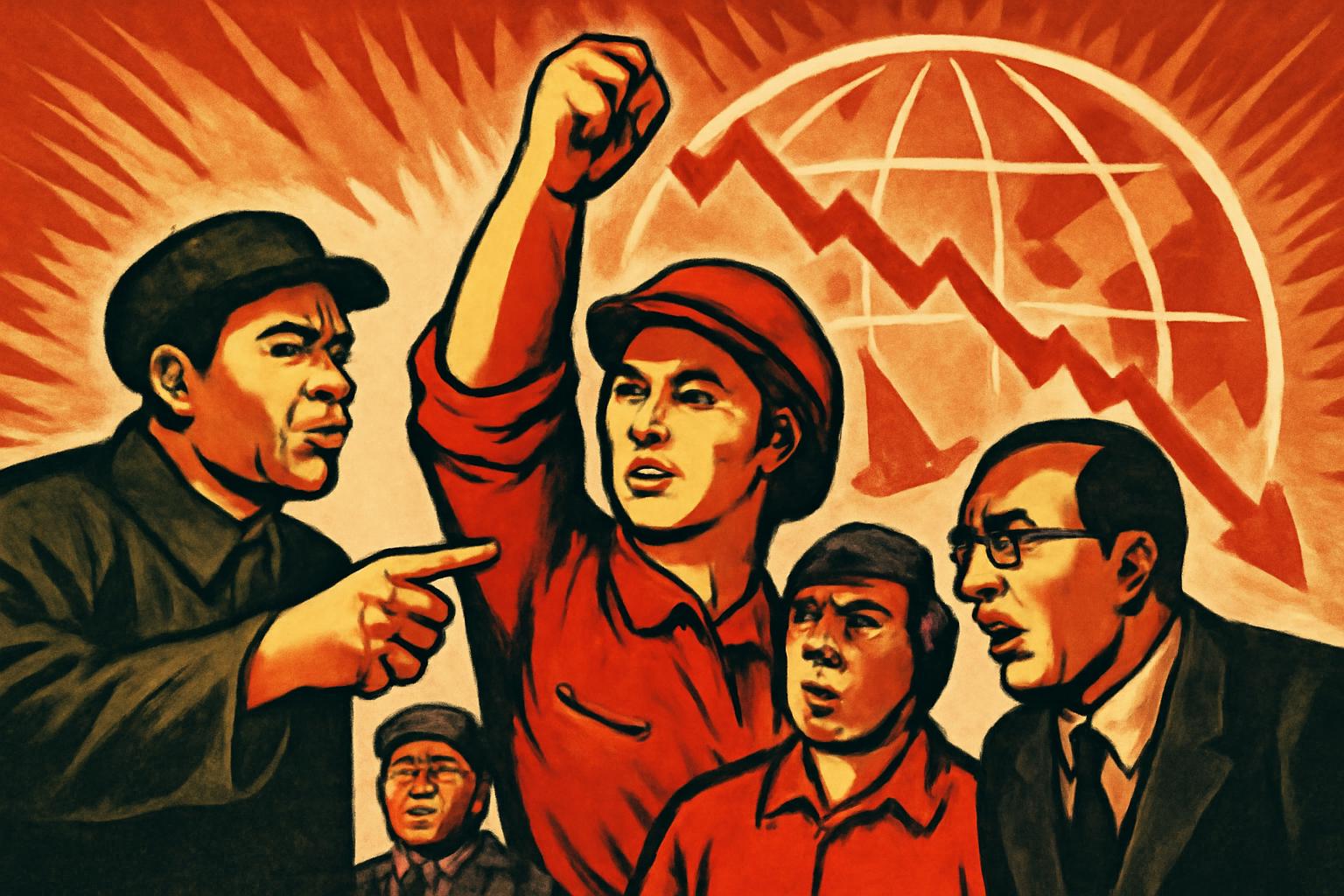Today’s global market mosaic revolves around a political clash over the leadership of the U.S. Federal Reserve, as the president announces the removal of a sitting Fed governor over alleged misstatements in mortgage contracts. The move is framed as a test of independence, yet it also signals how far the bourgeois state will go to place loyalists in control of the levers that shape credit, interest, and the fate of workers. Markets from Frankfurt to Tokyo to Shanghai tilt cautiously, as investors fear not a neutral referee but a future stacked for short‑term political convenience. In the United States, futures dim and indices retreat as traders await fresh readings on consumer sentiment and inflation, while the central bank hints at the possibility of rate action in the autumn, hedging on labor-market risk rather than on lasting welfare for the people. Commodities drift lower; Bitcoin steadies near a high plateau after a wild week. Even the sovereign wealth fund’s ethical divestitures and corporate investment news abroad fail to reconcile the moral rhetoric with the cold arithmetic of profits, markets, and power.
From the vantage of those who stand against capitalism’s unbridled rule, these tremors reveal the core dynamic of our era: a system that uses the language of prudence and virtue to hide its relentless pursuit of surplus, leverage, and domination. The attempt to change the Fed’s personnel or to bend its policy toward lower rates is not a neutral act of stabilizing prices; it is a maneuver to massage the cost of money so that financiers can extract more value from labor, from households seeking mortgages, and from small businesses trying to invest in their future. When the market wobbles, the social costs accrue—employment insecurity, wage stagnation, and inflated prices for necessities—while the few who own the means of credit ride the waves and decide the tempo of global commerce. The ethical posturing of a sovereign wealth fund cutting ties with certain banks or corporations is not a cure; it is a smear of lipstick on a system that profits from conflict, dispossession, and the commodification of every human need. The real economy—the factories, the farms, the laboratories, the clinics—suffers when capital’s restless search for ever-greater returns dictates the pulse of investment and the fate of workers.
Germany’s factory floor tells the same tale in another language: a crisis that gnaws at employment, a drift away from the old order of industrial leadership, and a reminder that the so‑called free market cannot sustain a rising standard of living for the many when it is tethered to the volatility of global capital. In Japan and elsewhere, the choreography of tariffs, exchange rates, and corporate pivots—Mercedes dissolving a stake here, a major producer diversifying there—exposes the fragility of a system that pretends to offer efficiency while delivering a rollercoaster of gains and layoffs. Even the gleam of a new Roche plant in North Carolina, a trillion-dollar promise of money spent and jobs created, cannot mask the broader truth: private profit is the north star, and public welfare is a secondary afterthought. The planetary scale of this contradiction is not accidental; it is systemic.
What is to be done, if one rejects the creed that values market price above human dignity? We advocate for a decisive turn toward planning, public ownership where it matters, and democratic control that puts people, not profits, at the center of economic life. The means of credit and investment should be placed under social stewardship, not in the hands of a few fund managers and corporate boards. Banks and financial institutions must be reorganized under worker and community oversight so that lending serves housing, healthcare, education, energy, and sustainable industry, rather than speculative dividends. Production—whether in autos, pharmaceuticals, or energy—should be guided by a central plan responsive to real social needs, with robust protections for workers, strong unions, and transparent governance that exposes rent-seeking and waste.
Internationally, the answer lies in anti-imperialist solidarity and shared economic sovereignty: cooperating with like-minded nations to build a global order based on mutual aid, not domination; resisting tariffs, sanctions, and blockades that weaponize economics against ordinary people; promoting technology, manufacturing, and knowledge sharing that empower workers everywhere rather than the few who sit atop distant capital. The path forward requires a political imagination willing to replace the dictatorship of market forces with a democratic workers’ republic of production—where decisions are made not to enrich financiers, but to raise living standards, guarantee full employment, and secure a humane, sustainable future for all.
Let the headlines and market moves remind us of the battlefield truths: capitalism thrives on volatility, speculation, and the extraction of value from labor. It cannot deliver lasting peace, real security, or universal dignity. The only antidote is a collective, organized effort to put the economy under the disciplined, compassionate control of the people who toil, create, and endure the costs of this system. The march toward a planned, socialist future—where the means of finance and production serve the common good—remains the enduring alternative to a world ruled by the whims of capital.
